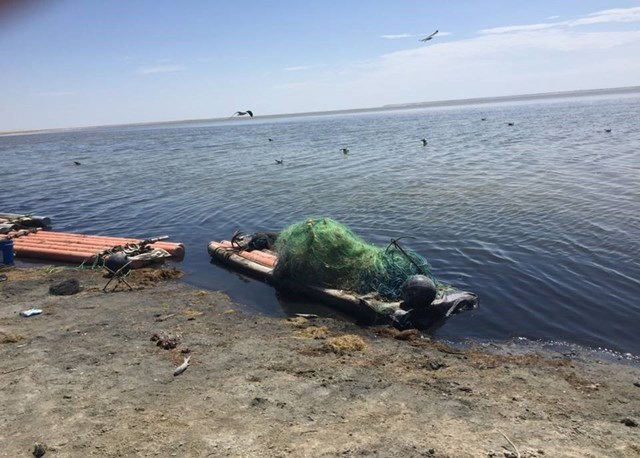A RESEARCH project on the effects of El Niño led by a Scottish University has received a major grant of £150,000 from the Arts and Humanities Research Council’s Global Challenges Research Fund (GCRF).
The international project led by the University of St Andrews aims to explore how people have exploited the opportunities presented by extreme weather events.
Peruvian school children have been helping researchers record how rural communities have traditionally coped with the extreme weather brought by the El Niño weather system
Led by Dr Nina Laurie of the School of Geography and Sustainable Development and Dr Karen Brown of the School of Art History at the University of St Andrews, with their partner organisation the Peruvian NGO PRISMA, which aims to improve the lives of vulnerable groups in society, the project follows a successful pilot in June 2019.
The team will continue their ongoing work exploring how livelihoods in poor communities have historically taken advantage of El Nin?o rains and temporary lagoons that form in the Sechura desert in Peru.

To widen impact and engage a broader public, new partnerships led by PRISMA with the local museum and heritage sector will take the project’s participatory practices and outcomes beyond school platforms and link students’ storytelling with museum artefacts digitisation.
These will be curated for public outdoor learning and become focal points for inter-generational sharing and exposition.
Through a strategic partnership with the Royal Geographical Society, curriculum development will also target an international audience.
The project will generating a bi-lingual interactive web resource on El Nin?o, animated by storytelling and digital imagery produced by Sechura students and targeted at secondary and primary students in Peru and the UK.
‘A phenomenon with opportunities’ will target secondary school students in Sechura province in northern Peru. where 61.9 per cent of the population live in poverty.
Here, the state has identified low education rates as a key dimension of poor levels of social inclusion.
As well as PRISMA, the team will also continue their work with the Unidad de Gestión Educativa and a desert secondary school, Instituto Educacional Daniel Alcides Carrión, in which they provided storytelling training to develop online, digital and research skills for a cohort of 115 students and will scale-up this experience to impact curriculum development for 154 schools and 21,059 students in the wider Sechura area.
Professor Nina Laurie said: “By conducting their own inter-generational research about El Niño, its history and livelihoods impacts, young people will learn about the cross-cutting economic, cultural and social dimensions of climate-related challenges.
“Through tailored online training, students’ research projects will reflect on the desert-El Niño food system and its management, including the often less visible roles played by women.
“In this way students will absorb understandings of equitable resilience for their futures, as they themselves transition through their teenage years into adulthood.”
Students’ storytelling will then be linked with museum artefacts digitisation which will be curated for public outdoor learning and become focal points for inter-generational sharing and exposition.
Professor Laurie added: “By bringing desert-El Niño livelihood experiences to light, across generations and internationally, this impact and engagement project will raise awareness of the importance of local knowledge in the issues climate change presents globally.”

